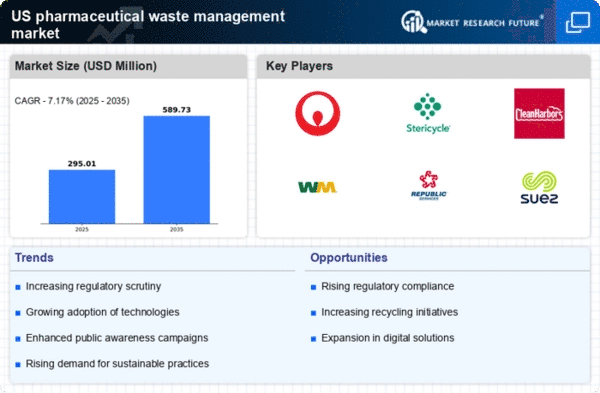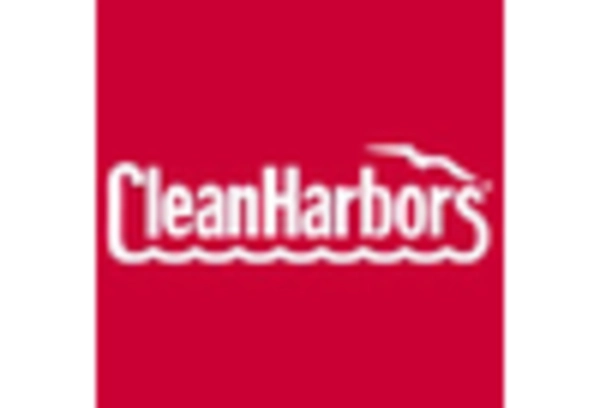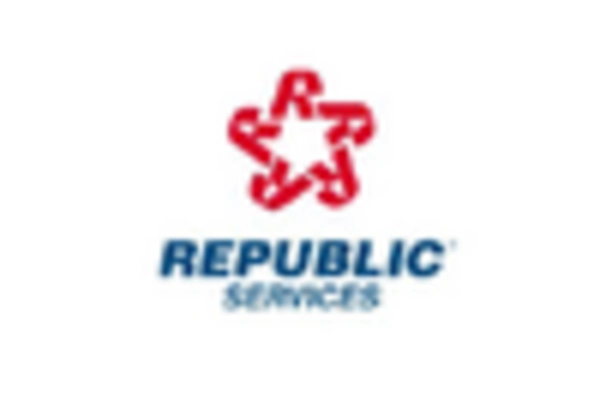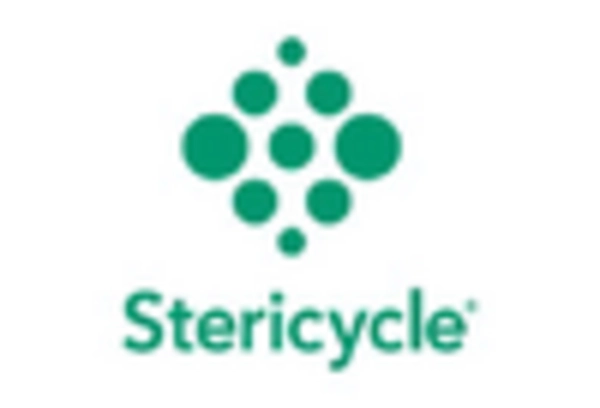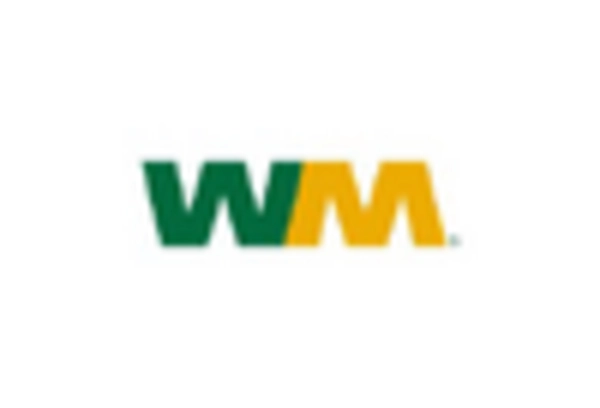Increasing Regulatory Scrutiny
The pharmaceutical waste-management market is experiencing heightened regulatory scrutiny as federal and state agencies enforce stricter guidelines for waste disposal. This trend is driven by the need to mitigate environmental risks associated with improper disposal of pharmaceutical products. The Environmental Protection Agency (EPA) has established regulations that mandate proper disposal methods, which has led to a growing demand for compliant waste-management solutions. In 2023, the market was valued at approximately $1.5 billion, with projections indicating a compound annual growth rate (CAGR) of 5.2% through 2030. This regulatory environment compels pharmaceutical companies to invest in effective waste-management strategies, thereby driving market growth.
Focus on Healthcare Facility Compliance
the emphasis on compliance within healthcare facilities is a pivotal factor driving the pharmaceutical waste market. Hospitals and clinics are increasingly required to adhere to stringent waste disposal regulations to avoid penalties and ensure patient safety. In 2023, approximately 70% of healthcare facilities reported investing in compliance training and waste-management systems to align with federal and state regulations. This focus on compliance not only mitigates legal risks but also enhances the reputation of healthcare providers. As regulatory frameworks continue to evolve, the pharmaceutical waste-management market is expected to benefit from the ongoing commitment of healthcare facilities to maintain compliance and implement effective waste-management practices.
Rising Awareness of Environmental Impact
There is a growing awareness regarding the environmental impact of pharmaceutical waste, which is significantly influencing the pharmaceutical waste-management market. Stakeholders, including healthcare providers and consumers, are increasingly concerned about the potential harm caused by improper disposal of medications. This awareness has prompted healthcare facilities to adopt more sustainable waste-management practices. In 2024, it was estimated that around 30% of healthcare facilities in the US had implemented advanced waste-management systems to address these concerns. As public consciousness continues to evolve, the demand for innovative solutions in the pharmaceutical waste-management market is likely to increase, fostering further market expansion.
Growing Demand for Safe Disposal Solutions
The increasing demand for safe disposal solutions is a critical driver of the pharmaceutical waste-management market. As the volume of pharmaceutical products continues to rise, so does the need for effective disposal methods that prevent environmental contamination and public health risks. In 2025, it is anticipated that the market for safe disposal solutions will reach $2 billion, reflecting a growing recognition of the importance of responsible waste management. This demand is particularly pronounced in urban areas, where the concentration of healthcare facilities necessitates robust waste-management strategies. Consequently, companies that offer comprehensive disposal solutions are likely to see significant growth in this evolving market.
Technological Integration in Waste Management
The integration of advanced technologies in waste management is transforming the pharmaceutical waste-management market. Innovations such as automated waste sorting systems and real-time tracking of waste disposal are becoming more prevalent. These technologies enhance efficiency and compliance with regulatory standards, thereby reducing the risk of environmental contamination. In 2025, it is projected that the market for technology-driven waste solutions will account for approximately 40% of the overall market share. This shift towards technological integration not only streamlines operations but also supports pharmaceutical companies in meeting their sustainability goals, thus propelling market growth.


